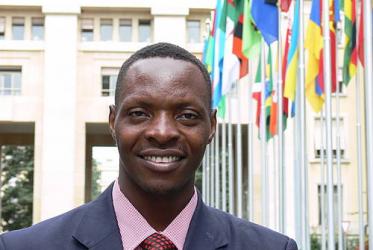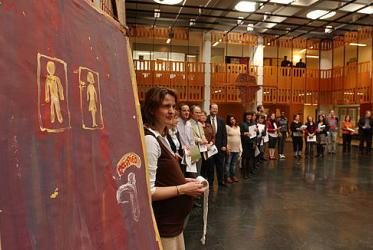Displaying 381 - 400 of 503
Lenten campaign focuses on water and just peace
03 March 2011
WCC calls governments for implementation of water as human right
22 February 2011
WCC Central Committee adopts statements on public issues
21 February 2011
Improving ecumenical cooperation to empower local communities
16 September 2010
Taking water to the Jordan
20 July 2010
Churches launch major humanitarian alliance
24 March 2010
Queues and prayers for water and sanitation
23 March 2010







